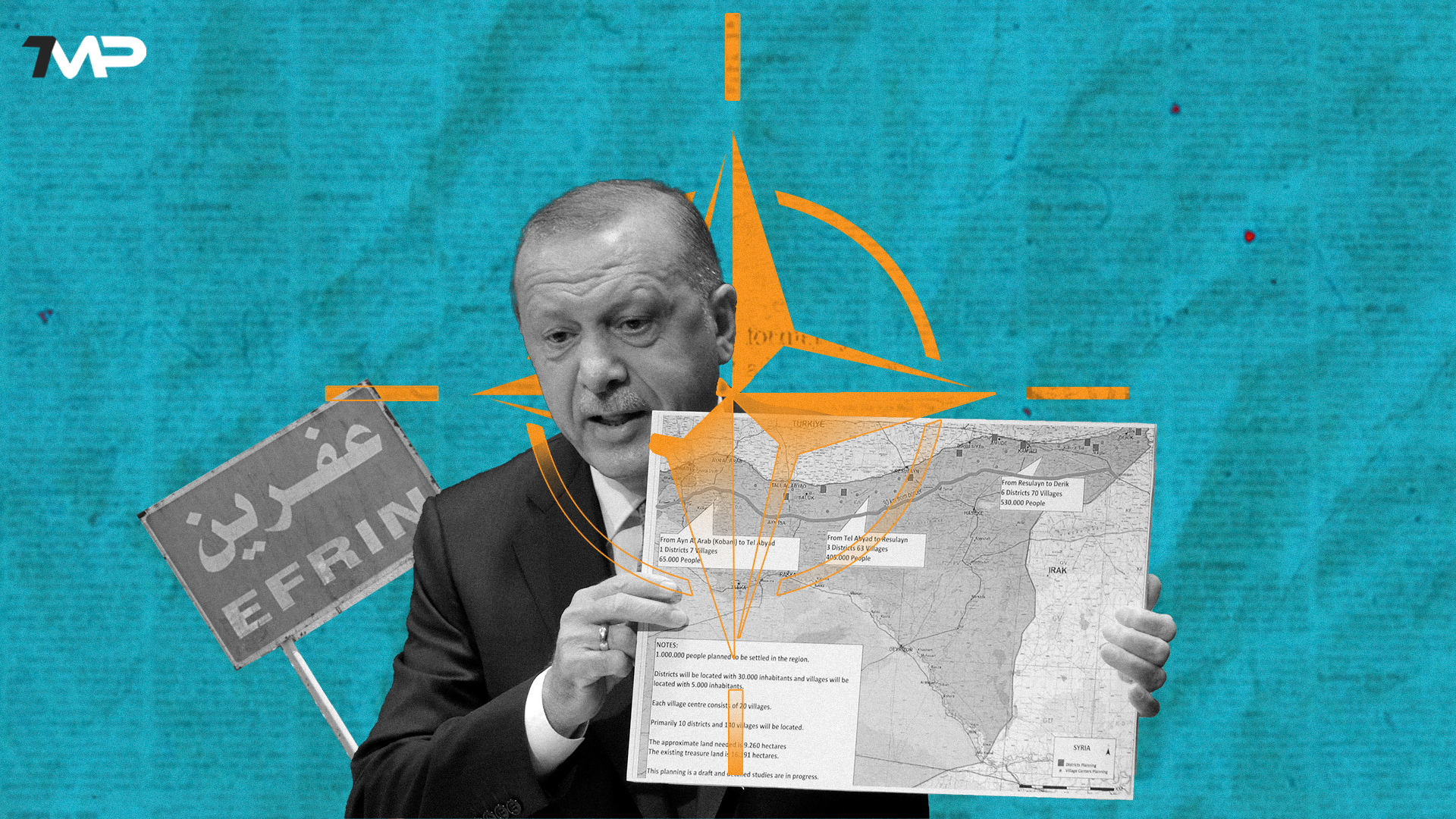
Turkey has been a member of NATO since 1952, but in recent years, the country’s leader, President Recep Tayyip Erdogan, has increasingly used Turkey’s NATO membership as a tool to pursue his interests. Erdogan has sought to establish Turkey as a regional power and expand its influence in the Middle East, often at the expense of the Kurdish people.
One example of Erdogan’s opportunistic use of Turkey’s role in NATO is the country’s ongoing military occupation of Afrin, a predominantly Kurdish region in northern Syria. The occupation, which began in January 2018, has been characterized by widespread human rights abuses and a state-sponsored campaign of Turkification.
The Afrin occupation has shocked watchdog groups and human rights organizations, who have documented numerous cases of forced displacement, arbitrary arrests, torture, and extrajudicial killings by Turkish forces and their allied militias. Civilians have been subjected to violence and intimidation, and many have been forced to flee their homes.
But perhaps the most insidious aspect of the Afrin occupation is the systematic effort by Turkey to impose its own cultural and linguistic identity on the Kurdish population. Under the guise of providing education and services to the local population, Turkey has established a network of schools and institutions that promote Turkish culture and language while suppressing the Kurdish identity.
According to a report by the Kurdish Center for Human Rights, Turkey has forced Kurdish schools in Afrin to teach the Turkish language and Turkish history while banning the teaching of the Kurdish language and culture. Teachers and administrators who refuse to comply with these policies have been arrested or fired, and schools that resist the Turkification campaign have been shut down.
In addition to these measures, Turkey has also sought to erase Kurdish history and culture by destroying cultural heritage sites and replacing Kurdish place names with Turkish ones. This deliberate effort to erase Kurdish identity is a clear violation of international law and a betrayal of Turkey’s obligations as a member of NATO.
Despite the evidence of human rights abuses and cultural suppression, Turkey has continued to defend its occupation of Afrin and dismiss criticism from the international community. Erdogan has repeatedly claimed that the occupation is necessary to protect Turkey’s national security and fight terrorism, but in reality, the occupation has only fueled instability and violence in the region.
Moreover, the Afrin occupation has exposed the contradictions and weaknesses of NATO’s approach to human rights and democracy. While the alliance espouses these values, it has done little to hold Turkey accountable for its abuses and has instead focused on maintaining its strategic partnership with the country.
This lack of action has emboldened Erdogan and given him a free hand to pursue his agenda, regardless of the consequences for the Kurdish people or the region as a whole. It has also undermined NATO’s credibility and legitimacy as a defender of human rights and democracy.
To address this crisis, the international community must take a stronger stand against Turkey’s abuses in Afrin and demand that the country respect the human rights and cultural identity of the Kurdish population. NATO, in particular, must use its influence and leverage to pressure Turkey to end its occupation and withdraw its forces from Syria.
If NATO is to remain relevant and effective in the 21st century, it must prioritize the values of democracy, human rights, and the rule of law, even when it means confronting its members. The Afrin occupation is a clear test of NATO’s commitment to these values, and the world is watching to see if the alliance will rise to the challenge.
